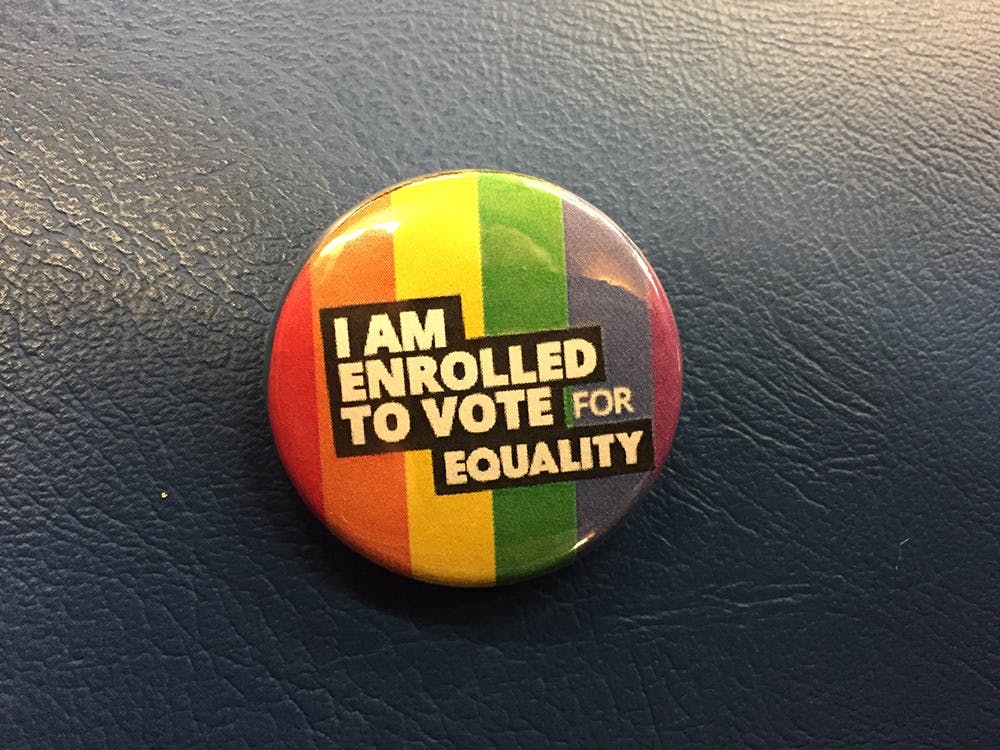Same-sex marriage and LGBT rights are a recurring theme for most countries. Due to conflicting views, they always pop back up.
I remember the 2015 debate both leading up to and after the U.S. Supreme Court’s decision to legalize same-sex marriage. It exploded across news outlets and social media.
I didn’t expect the same thing when I arrived in Australia. But similar to our own recent history, Australia’s debate is about to ricochet up to the next level.
The Australian government is allowing what’s called a plebiscite vote to gauge public feeling on legalizing same-sex marriage. I sat down and spoke briefly with Australian university student Leigh Briar.
Briar was advocating with other students at the University of Adelaide for Australians to enroll to vote in the upcoming plebiscite vote and overturn the 2004 law preventing same-sex marriage.
In 2004, the Australian parliament defined marriage as strictly between a man and a woman. Before the 2004 amendment was added, the Marriage Act 1961 had no such definition.
For Briar, this vote is a chance to show support for LGBT rights and to put an end to the 2004 definition.
“It’s an opportunity to show the power of the masses,” Briar explained to me.
The Australian government will send out a voting card to everyone with a current address who is enrolled to vote.
Australian citizens will either say “no” or “yes” to whether same-sex marriage should be legal. But even all same-sex marriage supporters aren’t happy about what they see as a meaningless exercise.
The vote is voluntary for Australians. In fact, the Australian Senate killed a mandatory plebiscite, and the postal one is the result. It’s also not legally binding.
The only group who can amend Australia’s marriage law is the federal government, and this postal vote is a move to gauge that public sentiment.
Labor Senate Leader Penny Wong, a supporter of LGBT rights, harshly critiqued the plebiscite Aug. 8. She claimed many same-sex couples or those with that attraction could be subjected to bigotry during this process.
Her opposition had previously said the vote could serve as a “unifying moment.”
“Have a read of some of the things which are said about us and our families, then come back here and tell us this is a unifying moment,” Wong said.
The postal vote isn’t just contentious because of the issue, but also because it is estimated to cost the country approximately 122 million Australian dollars.
That’s around $96 million U.S. dollars. For something with no legal standing, it seems almost painfully expensive.
People like Briar disagree. For them it’s not about money. It’s about the country moving forward in a lengthy struggle.
It helps that Briar has some good figures to back up her claim. A poll by the Australian Broadcasting Company indicated a majority of Australians, three out of four, would support the legalization of same-sex marriage.
However, this raises the question of why they would have a postal vote at all. If Australians have already conducted these much cheaper polls, it seems redundant, and to paraphrase Wong, possibly dangerous.
Prime Minister Malcolm Turnbull acknowledged that no extra protections will be provided for the LGBT community during the postal-vote period. But Briar and her fellow LGBT advocates told me point-blank that they’re not worried.
They’re electrified to have the issue out in the open. For them, the 2004 definition of marriage as "between a man and a woman" was a “clear attack” on their rights.
This is a sentiment sure to resonate with some U.S. citizens back home in light of President Donald Trump’s recent denouncement of transgender soldiers. Australia’s postal vote reflects not just a national issue, but a global one.
If the vote comes back in support of same-sex marriage, the government will allow a proposed amendment to the marriage law to be introduced, but even that guarantees little.
Marriage equality is a contentious issue, dear to many on the left and abhorred by others on the right, but everyone should be concerned about what looks like it might be a waste of money with no legal standing.
On the other hand, people like Briar see this as LGBT supporters’ shining moment to take to the streets and bring the government to heel.
“It’ll really put them in their place,” Briar said, describing the postal vote.
Will this mean anything for U.S. citizens back home? In my opinion, it won’t impact us directly, at least.
We already endured the gay marriage debate back in 2015. However, the issue of LGBT rights is one that consistently raises its head, whether it’s the issue of marriage equality or allowing transgender soldiers in the military.
The issue always comes back, whether it’s in Australia or in the U.S. But when it comes to the protection and expansion of civil liberties and sensible economic decisions, it probably behooves the world, regardless of what side of the issue they stand on, to perk their ears up and listen. My recommendation is to keep an eye on Australia.






